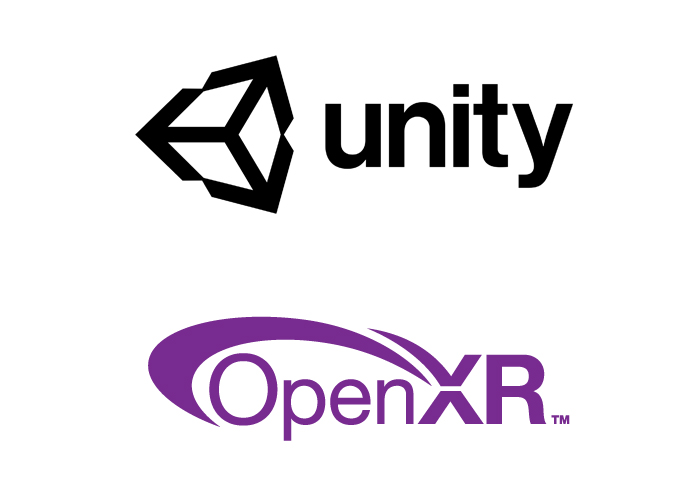
In Augmented Reality, Virtual Reality and Mixed Reality News
October 24, 2020 – Unity Technologies, a leading platform for creating and operating interactive, real-time 3D content, has recently announced that it plans to have early previews of its support of OpenXR on some platforms as early as the end of this year (Unity 2020 release cycle). The company noted that it has been closely monitoring the development of the OpenXR standard, and has accelerated its efforts to enable OpenXR in Unity.
OpenXR is an open standard created by the Khronos Group, aimed at simplifying augmented and virtual reality (AR/VR) development by allowing developers to seamlessly target a wide range of AR/VR devices. Unity is a member of the Khronos Group and is an active contributor to the OpenXR standard.
In a blog post on the announcement, Matt Fuad, Sr. Technical Product Manager, AR/VR at Unity, commented: “We’re at an inflection point now, where OpenXR 1.0 has been ratified and OpenXR runtimes by various vendors are reaching maturity. This inflection point has accelerated our efforts to enable OpenXR in Unity. Though we’re still working through some details, we want to reiterate our commitment to OpenXR and are excited to share our latest plans.”
As OpenXR becomes the primary backend for many platforms, Unity added that it is working with its partners to ensure full Unity support of their OpenXR runtimes, along with the necessary OpenXR extensions to ensure parity with existing features. The company stated that its development efforts and support will be focused on providing the best developer experience on Unity supported platforms.
Furthermore, by enabling OpenXR support on partner platforms, it affords Unity the ability to make support widely available for other OpenXR runtimes/devices. Early next year, the company plans to release an experimental version of Unity OpenXR that works with other conformant OpenXR runtimes based on the OpenXR 1.0 specification. Of course, the company clarified that given the unbounded combinations of possible hardware/software configurations, it will not be able to test or guarantee that all configurations will work optimally. However, as issues are discovered with runtimes, Unity stated that it will work to contribute conformance tests and specification changes back to the Khronos working group to help the community as a whole. Additionally, the company will also make sure that it is clear to developers which platforms have been fully tested and thus supported by Unity.
Fuad added: “Our mission is to make it as easy as possible for developers to take their content to the widest set of desired platforms. OpenXR is an important part of that story, and will be implemented as a part of our XR plug-in framework (XR SDK).”
This means developers will be able to continue using Unity’s suite of XR workflows and frameworks (AR Foundation, XR Interaction Toolkit, Unity MARS) for platforms that adopt OpenXR, as well as platforms that may choose not to adopt it.
Unity noted that it will be announcing more updates over the coming months. For more information on OpenXR, please visit the Khronos Group’s website.
Image credit: Unity Technologies / Khronos Group
About the author
Sam Sprigg
Sam is the Founder and Managing Editor of Auganix. With a background in research and report writing, he has been covering XR industry news for the past seven years.




